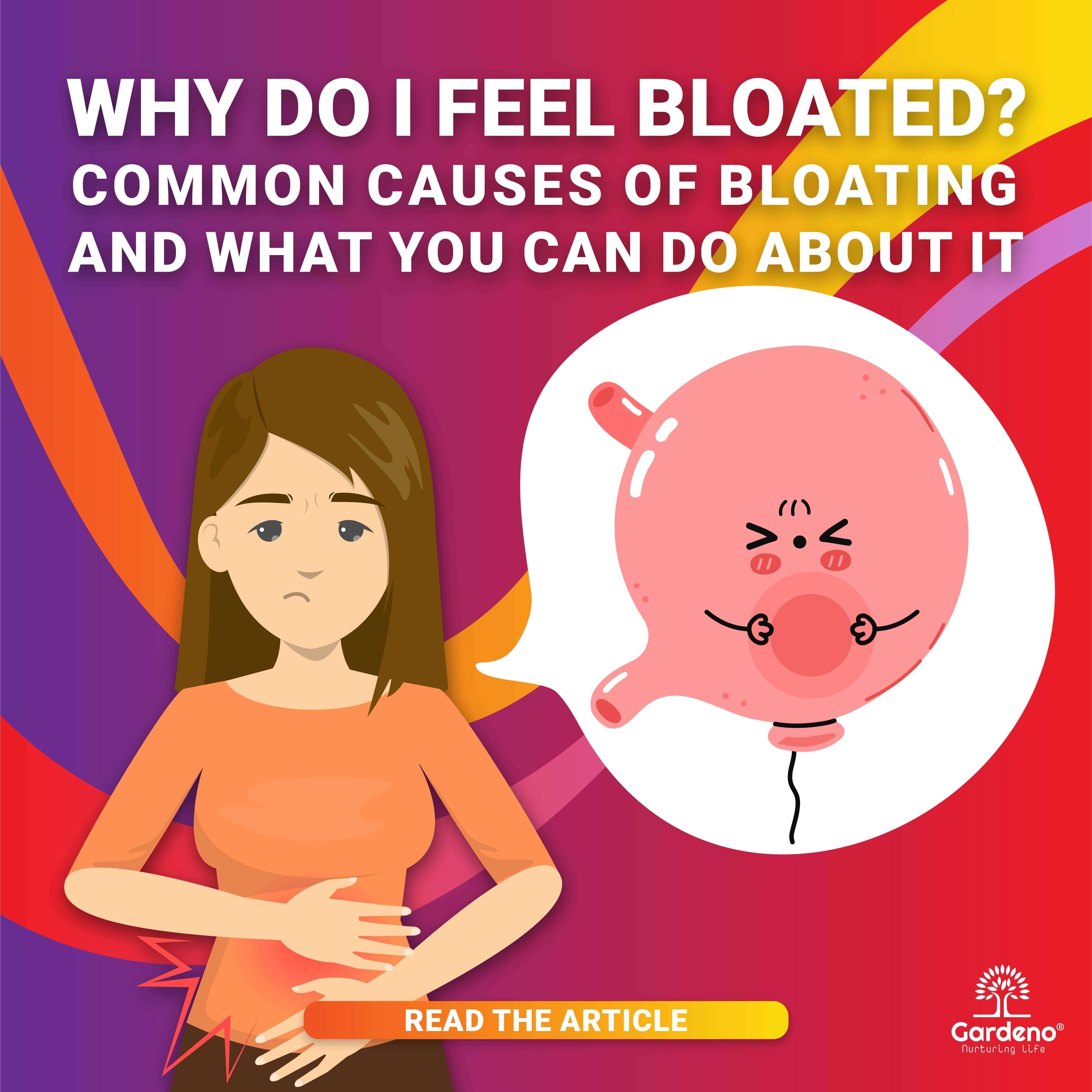

Why Do I Feel Bloated? Common Causes of Bloating — and What You Can Do About It
An issue that most of us have faced at least once, bloating is when your belly becomes swollen or enlarged after a meal. Bloating is common-enough issues face by at least 16-30% of the population. The causes of bloating can vary from diet to disease. However, the main cause of bloating is usually your diet.
So, what causes bloating?
The first and most likely reason is that you ate more than you probably should have. Having big meals can make you feel uncomfortable afterward. Eating too fast could also result in you swallowing air which could lead to bloating. Other than eating and diet, there are a few medical conditions that can cause abdominal bloating. Such as:
- Inflammatory bowel disease
- Hormonal flux
- Eating disorders
- Heartburn
- Intolerance to certain food
- Irritable bowel syndrome


Gas build-up
While it’s part of the digestive process, excess gas can cause bloating. This excess gas could be attributed to your diet. Certain foods are more likely to cause gas build-up than others.
Diet
Foods like apples, legumes, dairy, onions, and peaches are more likely to cause bloating. However, these foods contain many of the important vitamins and nutrients you need every day. Certain fruits and vegetables like brussels sprouts, cabbage, carrots, and cauliflowers can cause bloating.
Taking vitamin supplements can help you get these nutrients if you suffer from excessive bloating.
Fatty foods
Meals high in fat content take longer to digest. If you think that fried and processed foods are causing you digestive issues, switch to healthier fats like avocado or nuts.
Soft drinks
Carbonated drinks are one of the main causes of bloating in people. The carbon dioxide can cause gas buildup in your body leading to abdominal discomfort and even pain.
Whole grains
While whole grains are quite beneficial to your overall health, it’s just as likely to cause gassiness and bloating. The fiber in whole grain is indigestible and is needed for a healthy digestive system. However, suddenly increasing your fiber intake can cause bloating issues till your body has adjusted. So, add fiber slowly to your diet and drink more water to help with digestion.
If you are prone to gassiness and bloating from eating certain foods, try getting your daily nutrients from vitamin supplements instead.
How to reduce bloating
- Avoid chewing gum
- Drink more water instead of soda
- Exercise regularly
- Take smaller meals often instead of one large meal
- Improve gut health with probiotics
- Reduce sodium intake
- Take herbal supplements
There are several herbal and vitamin supplements you can take to relieve bloating.
- Probiotic supplements to aid your gut health
- Lactase supplements can help people get the required nutrients through supplements if they are lactose intolerant
- Ginger supplements are great at helping speed up digestion and help fast food more quickly.
- Vitamin B6 supplements help with the metabolic process and can reduce chances of bloating
- Magnesium supplements help with reducing fluid retention and relaxing the intestinal muscles
Bloating is an issue faced by millions of people. Its causes range from a bad diet to eating too quickly to serious medical conditions. However, the majority of people can reduce bloating by having a healthy lifestyle, a balanced diet, and getting all the required nutrients either through food or with vitamin supplements.



